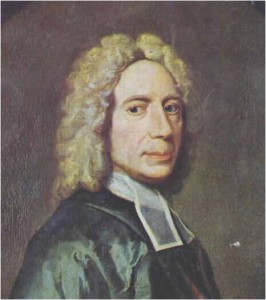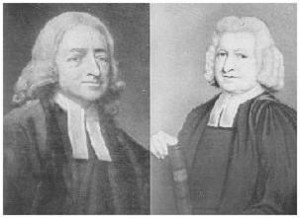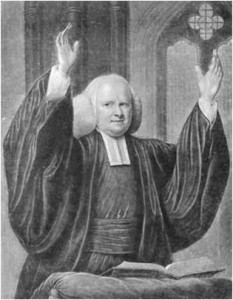Controversy surrounding church music may not have been prevalent in biblical times but it’s not new. Because as people became more mobile and exposed to different cultures, a variety of ideas began to be introduced into churches.
The evolution of church music as we’ve come to know it was originally steeped in the Old Testament Psalms. Then around 70 AD the Odes of Solomon were introduced. In the 300s Ephraem the Syrian wrote a wide variety of popular hymns, poems and sermons in verse full of practical theology for troubled times. By the Middle Ages they were doing chants at church. Gregorian chants accompanied by a crude organ with no harmonies lasted about 1000 years.
By the time of the Protestant Reformation in the 1500 – 1600s most official churches had grown to have silent congregations. A priest might sing in Latin which no one could understand and a choir might sing, but not the congregation. But with the reformation came the feeling that God’s word demanded a response and singing was one way for the common person to do that.
 Martin Luther
Martin Luther
Martin Luther was very influential in the Protestant Reformation and one of his lasting legacies was congregational singing. He dispensed with the choir and assigned all singing to the congregation. He thought music and singing were a means of instilling the Word of God in the people and teaching the tenets of faith – especially to the young. He loved Psalm 150:6 “Let everything that has breath praise the Lord.” He arranged songs in harmonies, used musical instruments in church, and used vernacular that people of that time could understand. These were all very controversial ideas at the time. He put the catechism, the Ten Commandments, and the Creed to music so they would be easy to remember. He wrote some of the songs we still sing today like A Mighty Fortress Is Our God.
John Calvin
Now about the same time as Luther we had John Calvin who was all for congregational singing including the young and the old. Both Calvin and Luther realized that learning songs steeped in scripture was a way to write it on people’s hearts. I guess in those days, just like today, people remembered song lyrics more than the seven points given in a sermon.
However Calvin had a different approach. All his church songs had to be sung in unison with no harmonies and no musical accompaniment. He felt that harmony and instruments would distort the clarity and spiritual meaning of what was being sung. Furthermore it had to be the Psalms or Old Testament scriptures. He wanted people to sing only words found in the Bible. Of course the danger in this was that none of those verses had much to say about Jesus.
Now Luther had adopted folk tunes into his church and Calvin didn’t want any of his church’s songs to be associated with street music, bar tunes, or dancing. Singing at church was not for human amusement or pleasure. A typical song might be Psalm 23…but sung without musical accompaniment or harmony. It would be more of a monotone.
First Worship War
So what we have here are two influences during the Protestant Reformation, Luther and Calvin, with two vastly different views on church singing – each thinking his way was the right way. Plus we still had the Catholic Church going strong with its chants and one organ. Now I’m not saying this was the first worship war, but I’m sure some people might have gravitated to the church which was more in tune with how they personally felt about church music.
 Isaac Watts
Isaac Watts
About 100 or so years later Isaac Watts was born in 1674 and grew up on Calvin’s musicology. When he was 19 he complained about the music to his father. I guess teenagers not liking their parent’s music is not a new phenomenon. His wise father encouraged him to write some music of his own and he did immediately. Isaac Watts eventually became a minister and continued to educate people about the Word of God, his power, and the significance of Christ’s life, death and resurrection through songs. He became a prolific hymn writer – at least 600 hymns we know about. Out of the hundreds of hymns he wrote a few have stood the test of time like When I Survey the Wondrous Cross and Joy to the World.
Now the churches were ripe for change. Watt’s songs were not only powerful but also personal. They were easy to sing with language that was plain and simple. His style soon spread to lots of denominational churches like Anabaptists, Presbyterians, Mennonites, Methodists, Puritans, and other non-Anglican streams. You might call him the first Christian cross over artist.
Charles and John Wesley
In the early 1700s brothers Charles and John Wesley were born. Both were leaders in the Methodist movement. At that time the usual method of singing in their church was called “lining out.” Church songbooks were expensive and many could not read so a song leader would say/sing a line and the congregation would say/sing the same thing. In other words people did not sing one line immediately after another as they do now. The Wesleys changed that. Charles and John wrote 56 collections of hymns in 53 years. Charles Wesley was the more prolific writing close to 9,000 hymns. Here are two you might recognize: Christ the Lord Is Risen Today and Hark the Herald Angels Sing.
John Wesley’s first book of tunes only had a melody line because he had serious doubts about singing harmonies. It was published in America in 1737 and for his effort he was brought before a grand jury in England for altering authorized psalms and for introducing unauthorized compositions. It is sad to realize that although Wesley wrote thousands of songs, his Methodist church sang none of his hymns in Sunday worship. They could only be sung at informal gatherings during the week.
 John Newton
John Newton
Around this time John Newton a converted slave trader wrote Amazing Grace. Of course it wasn’t originally Amazing Grace. It was Faith’s Review and Expectation which isn’t quite as catchy. It’s been sung to several different tunes. You see some of Watts, the Wesley’s, and Newton’s hymns were sung with melodies borrowed off the street so when people heard them they could sing them because they already knew the tune. This too was controversial. Newton even penned the words to a popular Austrian drinking song so the churches could sing it. It’s called Glorious Things of Thee Are Spoken.
So we can see that controversy surrounding worship music grew as people became exposed to new and different ideas. Next time we will explore the evolution of worship music in America.

